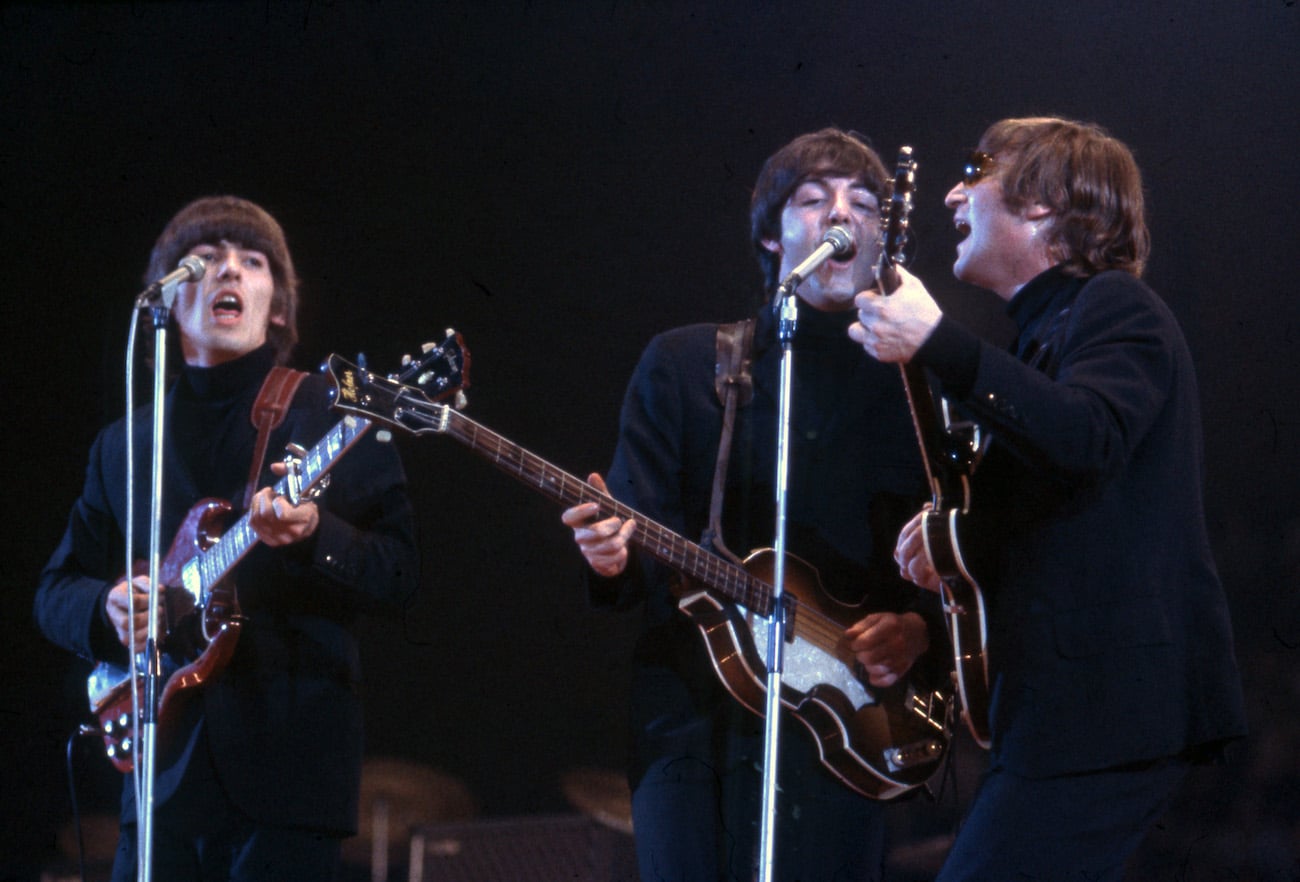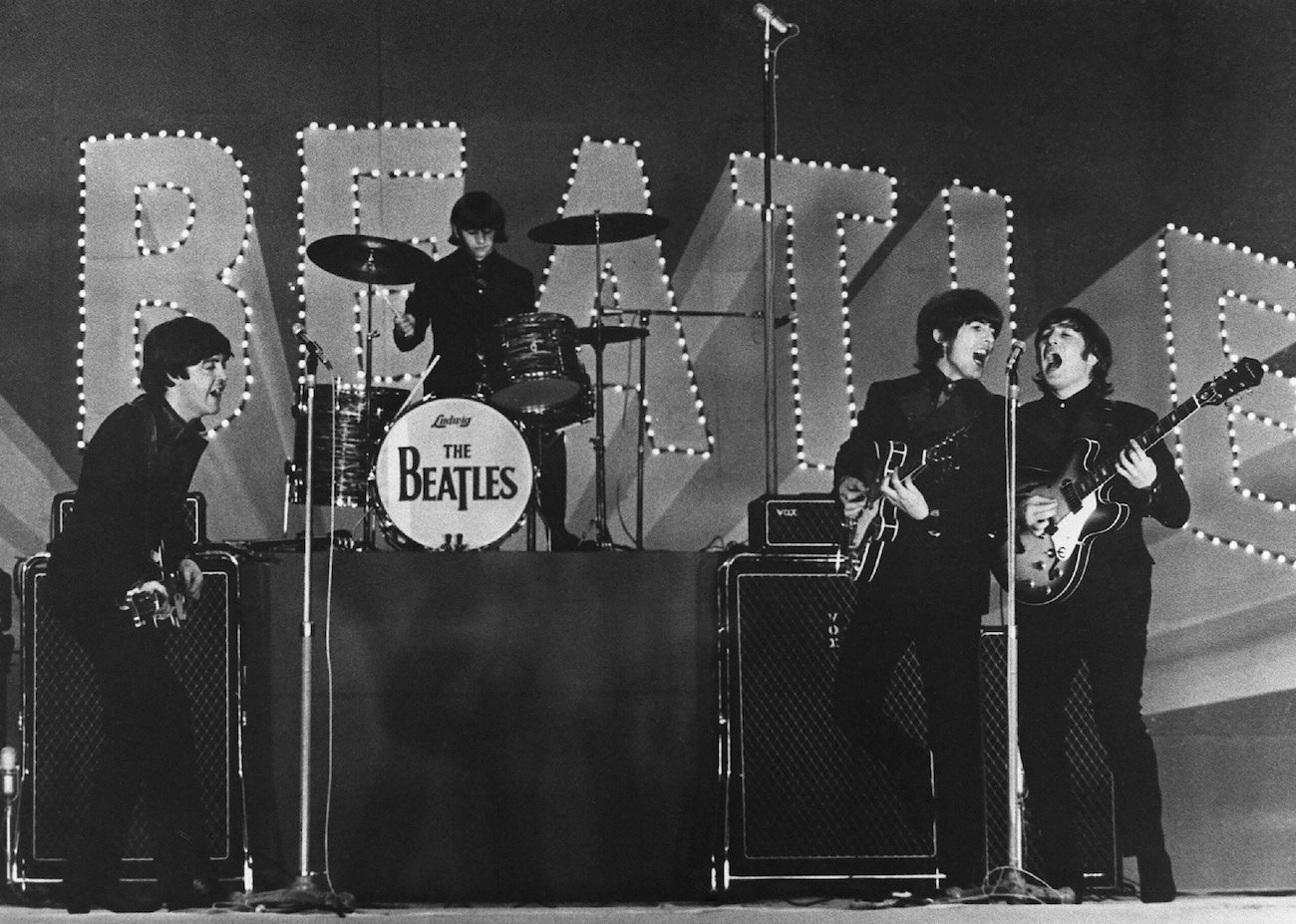
George Harrison Didn’t Care When People Called Him the Ex-Beatle Who Benefited the Most From the Group’s Dissolution
George Harrison didn’t care when people called him the ex-Beatle who benefited the most from the group’s dissolution. He didn’t want to be George the Beatle in any capacity.

George Harrison was the first to start disliking his time with The Beatles
George was the first Beatle to dislike his time in the band. It happened earlier than most think. He enjoyed the essence of the group the most; their companionship and effortless performances. That essence was strongest during The Beatles’ Hamburg, Germany, residency.
However, they couldn’t play dive bars forever. They wanted a recording contract, and when their manager, Brian Epstein, secured one, they climbed to the top fast. Almost too fast. They had a price to pay for fame. Soon, they couldn’t go anywhere without being chased by hoards of screaming fans. When they played the same 10 songs over and over on tour, those fans only screamed more.
By 1965, George hit a wall and recognized that fame wasn’t the answer. Thankfully, he met his musical guru, Ravi Shankar, who helped him with all his questions. Suddenly, George embarked on his spiritual journey. He traveled to India, read about ancient gurus, and learned the two most important things: God is sound, and being God-consciousness was essential.
His soul felt better, but he still had to go on being George the Beatle. None of the band’s ideas inspired him, but he felt better about working with the band because he put his spirituality into his songs. However, that was another problem. George began feeling constipated. John Lennon and Paul McCartney pushed him and his songs aside. Since he was only allowed two songs on each Beatles album, George began stockpiling his work for later. He bided his time.
George briefly quit while recording Let It Be but reluctantly returned for about another year. By then, all of the Beatles (except Paul McCartney) wanted out. The most uncomfortable part of being Beatle George was all the adulation. George only wanted God’s praise, not anyone else’s.
In Joshua M. Greene’s Here Comes The Sun: The Spiritual And Musical Journey Of George Harrison, producer Joel Dorn said, “One of the things about people who are famous, especially from the sixties and seventies, is that they tended to be, in my view, unbearable to be around. George didn’t have that extreme star thing.
“He didn’t have any of those silly trappings that a lot of people put on where they become, you know, so publicly spiritual that you want to push them down a flight of stairs. He wasn’t wrapped up in himself. We had this conversation about how you have to follow your heart, follow your instincts, and at the same time serve people through the projects you’re involved with.
“In that sense, he was unique in the circles I ran with in those years. I didn’t catch any false humility. He seemed to be into the core, the essence of it rather than proselytizing or preaching.”
George Harrison didn’t care when people called him the ex-Beatle who benefited the most from the group’s dissolution
Since George wanted out of The Beatles first, he benefited most from the group’s dissolution. Plus, he had a stockpile of songs and finally had a chance to release them. Once George released music, fans, and critics received it with open arms. All Things Must Pass did enormously well on all fronts, and its single “My Sweet Lord” was the first No. 1 from an ex-Beatle.
“Of all the Beatles’ solo albums to date,” wrote the Times of London (per Greene), “‘All Things Must Pass‘ makes far and away the best listening. Harrison’s light has been hidden under the egos of McCartney and Lennon, but from time to time there have been hints on several of their albums that he was more than he was allowed to be.”
Melody Maker’s Richard Williams wrote, “Harrison is free!” Greene added, “George was out of the shadows and creating a sound of his own.”
However, George didn’t care when people called him the ex-Beatle who benefited the most from the group’s dissolution.
Greene wrote, “‘All Things Must Pass’ launched George as a force in contemporary music, an inspired singer-composer who could make great music independent of the Beatles. Journalists dubbed him ‘the ex-Beatle most benefiting from the group’s dissolution,’ although the title meant nothing to him.
“True, he had felt held back in the company of John and Paul, but he harbored no ambition to prove himself their better. He wanted only to promote music as a channel to God, and record-buyers, at least for the moment, were responding well.”
He cared more about being God-conscious
George constantly said he wasn’t Beatle George, nor anything else that people called him. All he wanted to be was God-conscious.
“I don’t want to die as ‘George Harrison record producer’ or ‘George Harrison lead guitarist’ or even just a Beatle,” George told New Musical Express in March 1970. “They’re all me—but they’re not really me. The moment people start typecasting, then it’s time to move on. I’m unlimited. We’re all unlimited.”
One thing is for sure, George did shine outside of the box The Beatles put him in.


